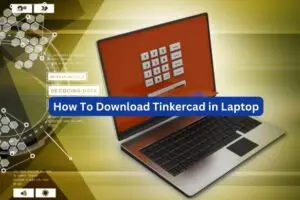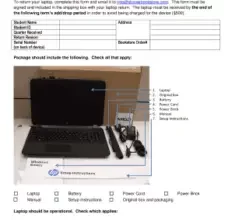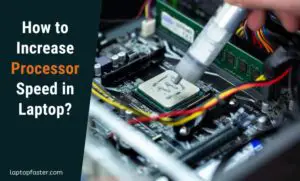True Or False: What You Need To Know About Laptops
Common Laptop Myths: What’s Actually True About Laptops?
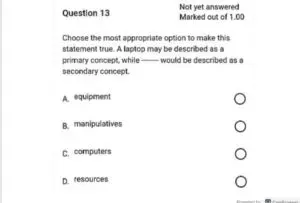
Laptops are portable computers that provide convenience and flexibility for users.
History Of Laptops
Laptops, a modern convenience that many of us can’t live without, have a rich history. The evolution of portable computers dates back to several decades ago. Understanding the history of laptops can provide valuable insights into their development and the technological advancements that have shaped the devices we use today.
Early Portable Computers
In the early days of computing, portable devices were quite different from the sleek, lightweight laptops we are accustomed to now. These early portable computers were bulky and cumbersome, often requiring a separate power source and limited functionality. Despite their limitations, they laid the foundation for the portable computing revolution that was yet to come.
The First Laptop Invention
The first true laptop, as we recognize them today, can be credited to Adam Osborne, who introduced the Osborne 1 in 1981. This groundbreaking innovation featured a compact design, a built-in screen, and a keyboard, making it a portable computing solution for professionals and consumers alike. Although the Osborne 1 was far from being as powerful or sleek as modern laptops, its invention paved the way for the development of more advanced portable computers in the years to come.
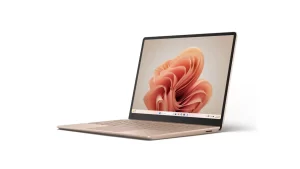
Credit: www.microsoft.com
Key Components Of Laptops
When it comes to laptops, understanding their key components is essential to make an informed buying decision. Laptops have evolved over the years, offering powerful performance, portability, and versatility. In this section, we will dive into the key components of laptops and explore their importance in enhancing the user experience.
Processor
The processor, also known as the central processing unit (CPU), acts as the brain of a laptop. It is responsible for executing instructions, performing calculations, and managing data flow. A powerful processor ensures smooth multitasking, fast application loading, and seamless performance. Common processors found in laptops include Intel Core i-series and AMD Ryzen, each offering different performance levels for various tasks and budgets.
Memory And Storage
Memory and storage are crucial components that determine the laptop’s ability to handle tasks efficiently and store data. Random Access Memory (RAM) allows the laptop to run multiple applications simultaneously, reducing lag and enhancing overall performance. On the other hand, storage refers to the capacity to store files, documents, and media. Traditional Hard Disk Drives (HDD) and Solid State Drives (SSD) are commonly used for storage, with SSDs offering faster data access speeds and improved durability.
Display And Graphics
The display and graphics play a significant role in the overall user experience and visual quality. An impressive display allows for vibrant colors, sharp imagery, and wide viewing angles. Additionally, the resolution determines the clarity of the content displayed. Graphics processing units (GPU) handle visual tasks from gaming to video editing, ensuring smooth playback, realistic graphics, and efficient rendering. Popular GPU options include NVIDIA GeForce and AMD Radeon.
Keyboard And Trackpad
A comfortable keyboard and efficient trackpad are vital for productivity and ease of use. A well-designed keyboard with responsive keys facilitates typing speed and accuracy, while a well-functioning trackpad allows for smooth navigation and gesture control. Keyboards may also have backlit options, making typing in low light conditions a breeze. Some laptops also offer touchscreens, providing an intuitive and interactive experience.
Battery And Power Management
The battery life of a laptop determines how long it can operate without being plugged in. A long-lasting battery is crucial, especially for users who require extended periods of usage away from a power source. Battery life can vary significantly between different laptop models, with some lasting up to 10 hours or more on a single charge. Power management features, such as battery-saving modes and adaptive brightness, help optimize battery usage and extend its lifespan.
In conclusion, understanding the key components of laptops allows users to make informed decisions based on their specific requirements. By considering the processor, memory and storage, display and graphics, keyboard and trackpad, and battery and power management, individuals can choose a laptop that meets their performance needs, enhances productivity, and provides an enjoyable user experience.
Advantages Of Laptops
Laptops have become an essential part of our lives, offering numerous advantages compared to traditional desktop computers. Their portability and mobility, versatility and flexibility, ease of use, connectivity, and power efficiency make them a preferred choice for many. In this article, we will explore each of these advantages in detail.
Portability And Mobility
Laptops are designed to be incredibly portable, allowing you to carry your work, entertainment, or important documents with you wherever you go. Unlike desktop computers, which are confined to a specific location, laptops are lightweight and compact, making them perfect for students, professionals, or anyone who needs to work on the go. With a laptop, you can easily take your office with you and stay productive wherever you are.
Versatility And Flexibility
One of the key advantages of laptops is their versatility and flexibility. With multiple ports and connectivity options, laptops give you the freedom to connect various devices like external monitors, printers, speakers, or input devices quickly and conveniently. This allows you to customize your workstation based on your specific requirements, making laptops ideal for a wide range of tasks, including gaming, graphic design, programming, or content creation.
Ease Of Use
Laptops are designed to be user-friendly, offering a hassle-free computing experience. With a built-in keyboard and trackpad, you can easily navigate and interact with your laptop without the need for additional peripherals. Most laptops also come with a touch screen option, further enhancing the ease of use. Additionally, laptops have a user-friendly operating system and robust software applications that make it simple for users of all skill levels to perform various tasks efficiently.
Connectivity
Connectivity is a vital feature of laptops, allowing you to stay connected with the world around you. With built-in Wi-Fi, Bluetooth, and Ethernet capabilities, laptops enable seamless internet connectivity and make it easy to connect to wireless networks or other devices. This connectivity not only enables you to stay updated with the latest news and communicate with others but also allows for collaborative work and online meetings.
Power Efficiency
Laptops are designed to be power-efficient, providing a longer battery life compared to desktop computers. This makes them a great choice for users who are frequently on the move or in situations where access to electrical outlets is limited. Additionally, laptops employ advanced power management technologies to optimize battery usage, reducing energy consumption and contributing to a greener, more sustainable environment.
Disadvantages Of Laptops
Laptops have revolutionized the way we work and communicate, but they also come with their fair share of drawbacks. Whether you’re a professional or a student, it’s crucial to consider the limitations that laptops bring to the table. Let’s take a closer look at some of the key disadvantages of laptops.
Limited Upgradeability
Unlike desktop computers, laptops are often limited in terms of upgradeability. Most laptops have soldered or non-replaceable components, making it challenging to upgrade the hardware as easily as desktops.
Smaller Screen Size
Laptops generally come with smaller screen sizes compared to desktops, which can lead to eye strain and discomfort, especially for extended usage.
Reduced Performance
In general, laptops tend to have reduced performance capabilities compared to desktops due to the compromise made for portability and power consumption.
Higher Price Compared To Desktops
When it comes to price, laptops are generally more expensive than desktops with similar performance capabilities, making them less cost-effective in the long run.
Susceptibility To Theft
Due to their portability, laptops are more susceptible to theft compared to desktops. This puts sensitive data and information at a higher risk of loss or compromise.
Future Trends In Laptop Technology
The advancement of laptop technology continues to evolve at a rapid pace, shaping the future of portable computing. From enhanced portability and lightweight designs to increased processing power and improved battery life, laptops are becoming more versatile and powerful than ever before. Additionally, connectivity and networking advancements are enabling seamless integration with various devices and networks, while advanced display technologies are enhancing the visual experience. In this blog post, we will explore these exciting future trends in laptop technology.
Enhanced Portability And Lightweight Designs
With the fast-paced lifestyle of modern times, the demand for highly portable and lightweight laptops is on the rise. Manufacturers are striving to create sleek and slim laptop designs without compromising on performance. These new models utilize lightweight materials and innovative engineering techniques to ensure that laptops are ultra-thin and easy to carry, making them ideal for professionals on the go, students, and travelers alike. The focus on enhanced portability allows users to carry their work and entertainment wherever they go.
Increased Processing Power
Laptops are becoming powerhouses when it comes to processing capabilities. The constant need for multitasking, resource-intensive applications, and seamless performance has led to the development of faster processors and increased memory capacity. With the incorporation of the latest generation of processors, laptops can handle complex tasks effortlessly, enabling users to work efficiently without any lag. This enhanced processing power not only enhances productivity but also enables smooth gaming experiences and seamless multimedia playback.
Improved Battery Life
One of the significant concerns for laptop users has always been battery life. The future trends in laptop technology address this challenge by focusing on improving battery performance. Manufacturers are leveraging advancements in battery technology to develop laptops with longer battery life. By optimizing power consumption and utilizing energy-efficient components, laptops can now last for extended periods without the need for frequent charging. This improvement in battery life ensures uninterrupted usage and enhances user convenience, particularly for those who are constantly on the move.
Connectivity And Networking Advancements
As digital connectivity becomes increasingly crucial in our interconnected world, laptops are incorporating advanced connectivity and networking features. The integration of the latest Wi-Fi standards, such as Wi-Fi 6, enables faster and more stable internet connections. Additionally, laptops are equipped with a wide range of ports and interfaces, ensuring seamless connectivity with various devices and peripherals. The future trends in laptop technology also incorporate advancements in Bluetooth technology, allowing easy pairing with wireless devices and enabling wireless file transfers. These connectivity and networking advancements enable users to stay connected and productive wherever they are.
Advanced Display Technologies
A remarkable trend in laptop technology is the advancement of display technologies. Manufacturers are continually pushing the boundaries to provide users with immersive visual experiences. The future laptops feature high-resolution displays with vibrant colors, sharp contrasts, and wide viewing angles. Some models even integrate touchscreens for enhanced interactivity and intuitive navigation. Furthermore, advancements in refresh rate, response time, and color accuracy further elevate the overall visual quality. These advanced display technologies ensure that users can enjoy stunning visuals, whether they are working, gaming, or watching multimedia content.

Credit: online.marquette.edu

Credit: www.wired.com
Frequently Asked Questions Of Which Statement Is True About Laptops
What Are The Advantages Of Using Laptops?
Laptops offer portability, allowing you to work or browse the internet from anywhere. They also have a compact design, saving space. Additionally, laptops come with various features and are suitable for multitasking, making them convenient for both work and leisure activities.
Can Laptops Be Used For Gaming?
Yes, laptops can be used for gaming. Many laptops are specifically designed for gaming, equipped with powerful processors, high-quality graphics cards, and ample storage space to handle the demands of modern games. However, it’s important to choose a laptop with the right specifications to ensure a smooth gaming experience.
How Long Does The Battery Of A Laptop Last?
The battery life of a laptop varies depending on factors such as usage, settings, and model. On average, a fully charged laptop battery can last between 4 to 8 hours. However, it’s worth noting that power-intensive tasks, such as gaming or video editing, can drain the battery faster.
Regular maintenance and adjusting power settings can help optimize battery performance.
Conclusion
In essence, it’s crucial to decipher your specific needs before choosing a laptop. Consider individual preferences, budget, and intended use to make an informed decision. Remember to focus on the key factors of performance, portability, and durability to find the perfect fit for your lifestyle.
Keep these in mind as you explore your options!

I am a technology writer and blogger based in the USA. I have over 5 years of experience writing about the latest trends and innovations in the tech industry, with a focus on topics like artificial intelligence, cybersecurity, and social media.
